

Scottish Literary Studies Medal
Since 2013 we have awarded this medal in conjunction with Edinburgh University English Department.
Professor Penny Fielding, Grierson Chair of English Literature at University of Edinburgh English Dept. explains:
The prize is awarded to the student with the best performance in Scottish Literature in their third or fourth year. Although we use marks for individual essays and the undergraduate dissertation as a guide for awarding the prize, many of the winners will have taken a number of Scottish literature courses over the course of their degree. We are always particularly happy when the prize winner has studied one of the Scott novels that we teach on our courses, including The Bride of Lammermoor, Roy Roy and Guy Mannering. As a department of English and Scottish Literature, the Sir Walter Scott Club is a valued partner in our joint endeavour to encouraging the appreciation of Scottish Literature, and Scott in particular, among new generations of readers.
2022 Cara Blacklock. Cara graduated this year with a first-class degree in English Literature, and won the prize for her final essay in the course “The Novel in the Romantic Period.”
The focus of the essay was the intersection of fiction and history in Scott’s Guy Mannering and James Hogg’s The Three Perils of Woman. She argued that Scott and Hogg conceptualise history in unique ways. Scott presents history as a linear progression of the times and character of Scotland, so his narrative banishes anything ‘other’ to this conception, such as the disruptive Meg Merrilies. Hogg relishes these interruptions to a linear narrative of history. His sense of history is more uncanny and gothic as the past and present meld with and circle around each other.
Cara is also interested in other aspects of Scottish literature, and loves the work of Margaret Oliphant, both her gothic short stories and her novel Hester. She has a particular interest in the gothic, and wrote her dissertation on gothic doubles, drawing on her reading of Stevenson, especially Jekyll and Hyde and The Master of Ballantrae also. Her favourite Scott novel is Ivanhoe but her absolute favourite Scottish text is George Douglas Brown’s The House with the Green Shutters.
Cara hopes to return to Edinburgh University soon to study for a postgraduate degree in English Literature.
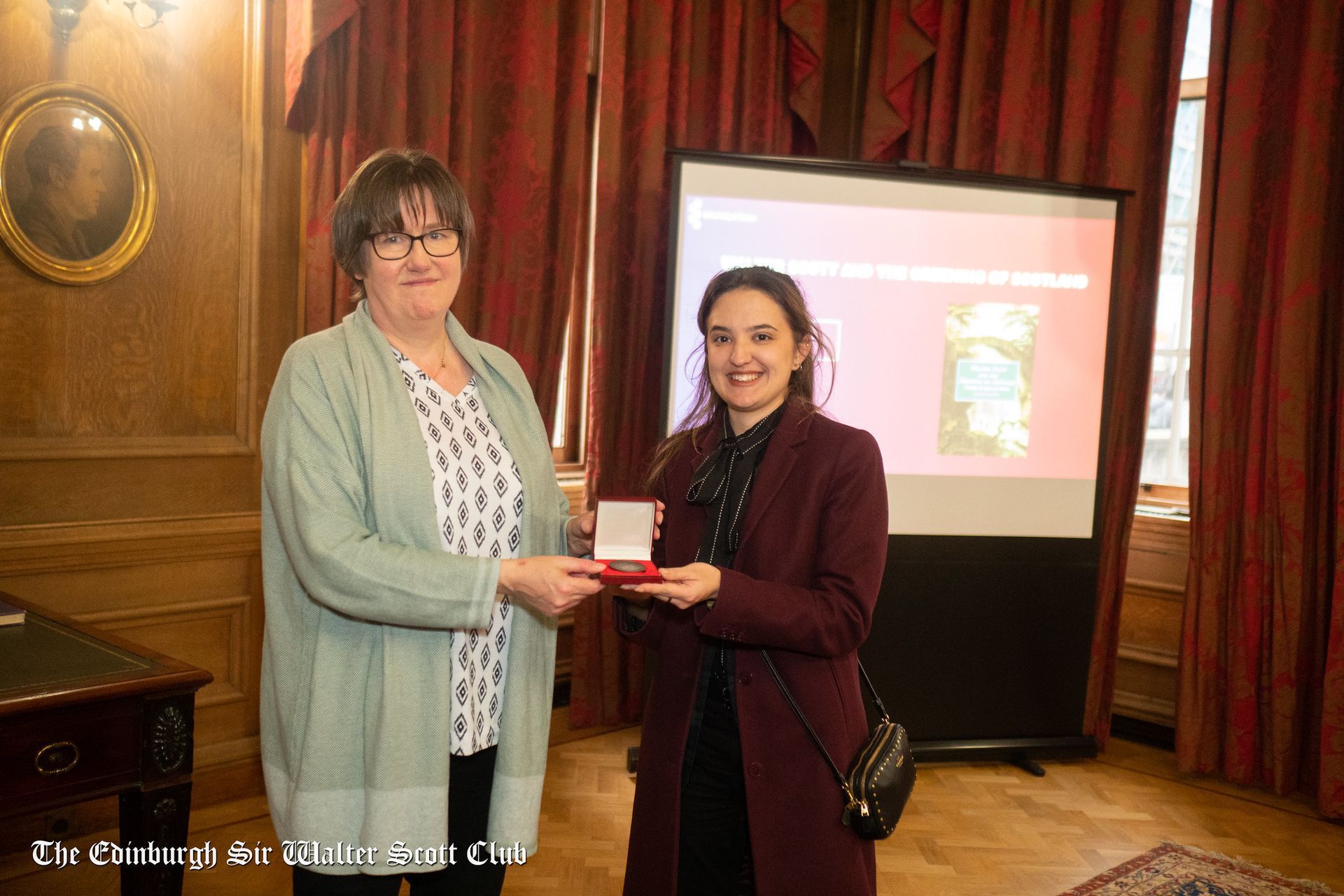
2021 Sophie Duncan. She graduated with a first-class degree in English and Scottish Literature. Her modules included ‘Romanticism: Themes, Genres and Contexts’ where she studied The Minstrelsy of the Scottish Border (her favourite Scott work) and The Heart of Midlothian; ‘Modernism, Myth, and Romance’ where she read the poetry of Nan Shepherd and Hugh MacDiarmid; and ‘Creative Writing: Prose’ where, as well as writing our own stories, she read Muriel Spark and John Burnside. She also took a Celtic Civilisations course in my first year, which got her interested in Scottish oral storytelling traditions. She returned to this interest for my dissertation, which was titled ‘Four Scottish Fairy Tales: An Encounter with The Bizarre’ which was awarded a very high mark. She found this a fascinating topic to write about and particularly enjoyed looking into the links between fairy tales and stories that children write and tell.
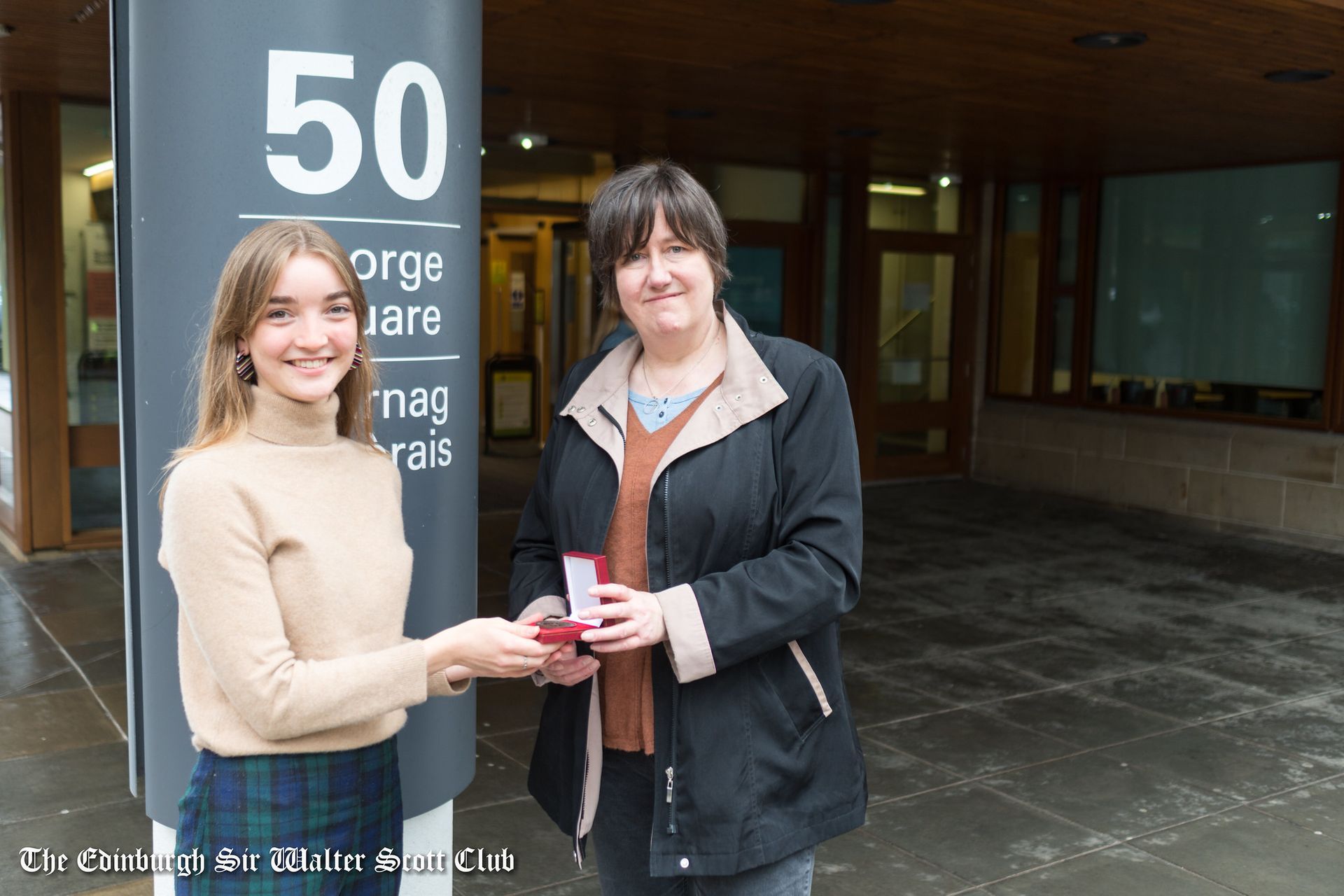
2020 Patrick Jamieson. He achieved an exceptionally strong mark of 85 for your coursework essay in Contemporary Scottish Fiction, titled 'Tearing Down the Tower Block: Examining the Link between Masculinity, Nationalism and Literary Heritage in Andrew O'Hagan's Our Fathers'. The course organiser, Carole Jones, agreed with the exams team that he deserved the prize for this outstanding essay, and performance overall.
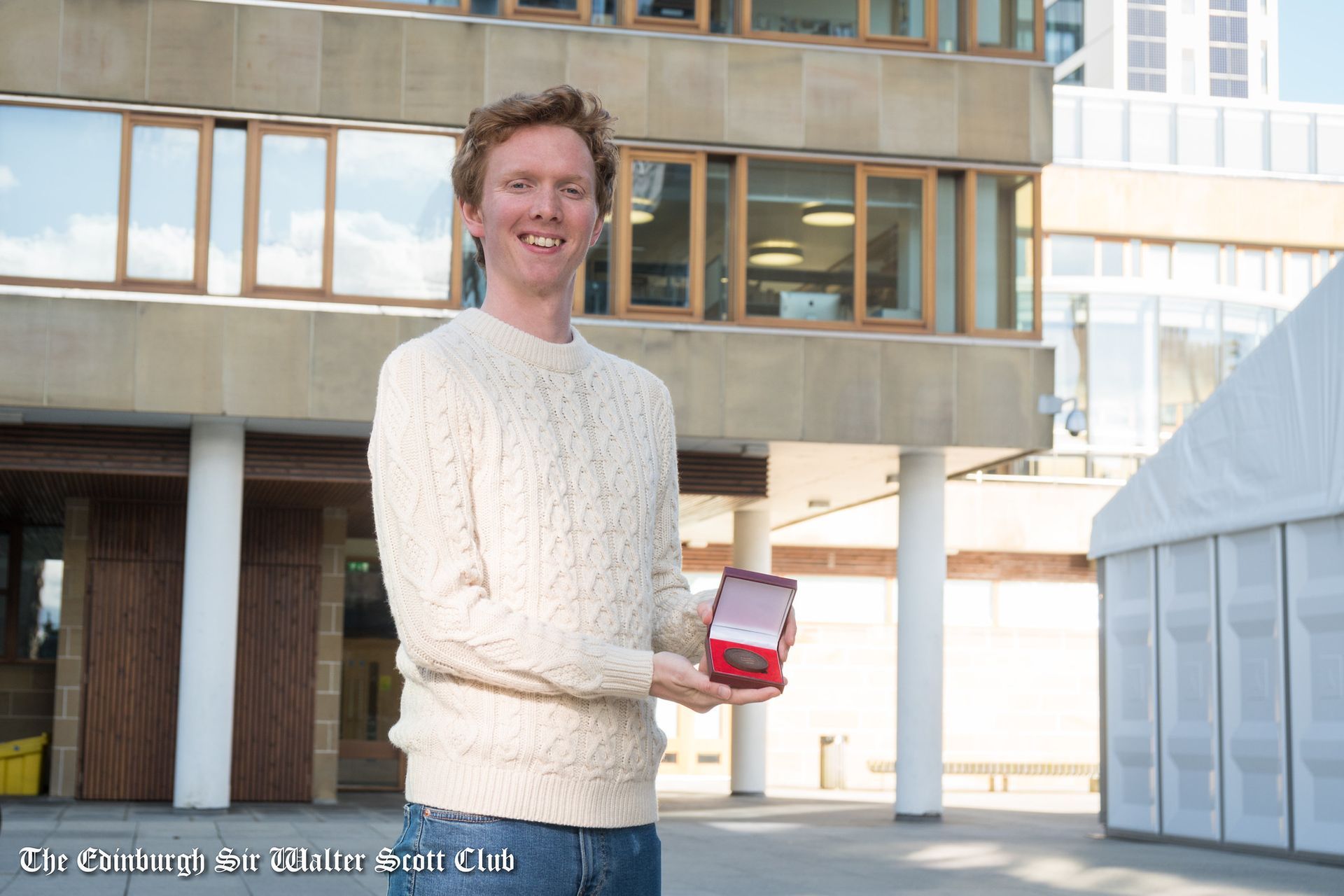
2019 Amy McFall. Amy grew up in Dumfries and so she always knew much more about Burns than Scott until she came to Edinburgh. One of her honours courses, 'Romanticism: Themes, Genres, Contexts' with Bob Irvine introduced her to her first Scott novel, 'Rob Roy.' Like other students in the course, she found it initially rather tough-going - but by halfway through she appreciated Scott's mastery of storytelling and was gripped. This got her reading a number of Scott's other novels, and led her to enthusiastically write about 'Guy Mannering' in her final exam for 'The Novel in the Romantic Period'.
Those courses, along with the Modern Scottish Fiction course with Alex Thomson, helped her form the idea for her dissertation, which compared the aesthetics of novels written around the French Revolution with those of Alasdair Gray's fiction.
She very much enjoyed that project and is looking to pursue further study in the comparisons of Romantic and Postmodern texts; perhaps next time focusing on her other great interest, Scottish poetry.
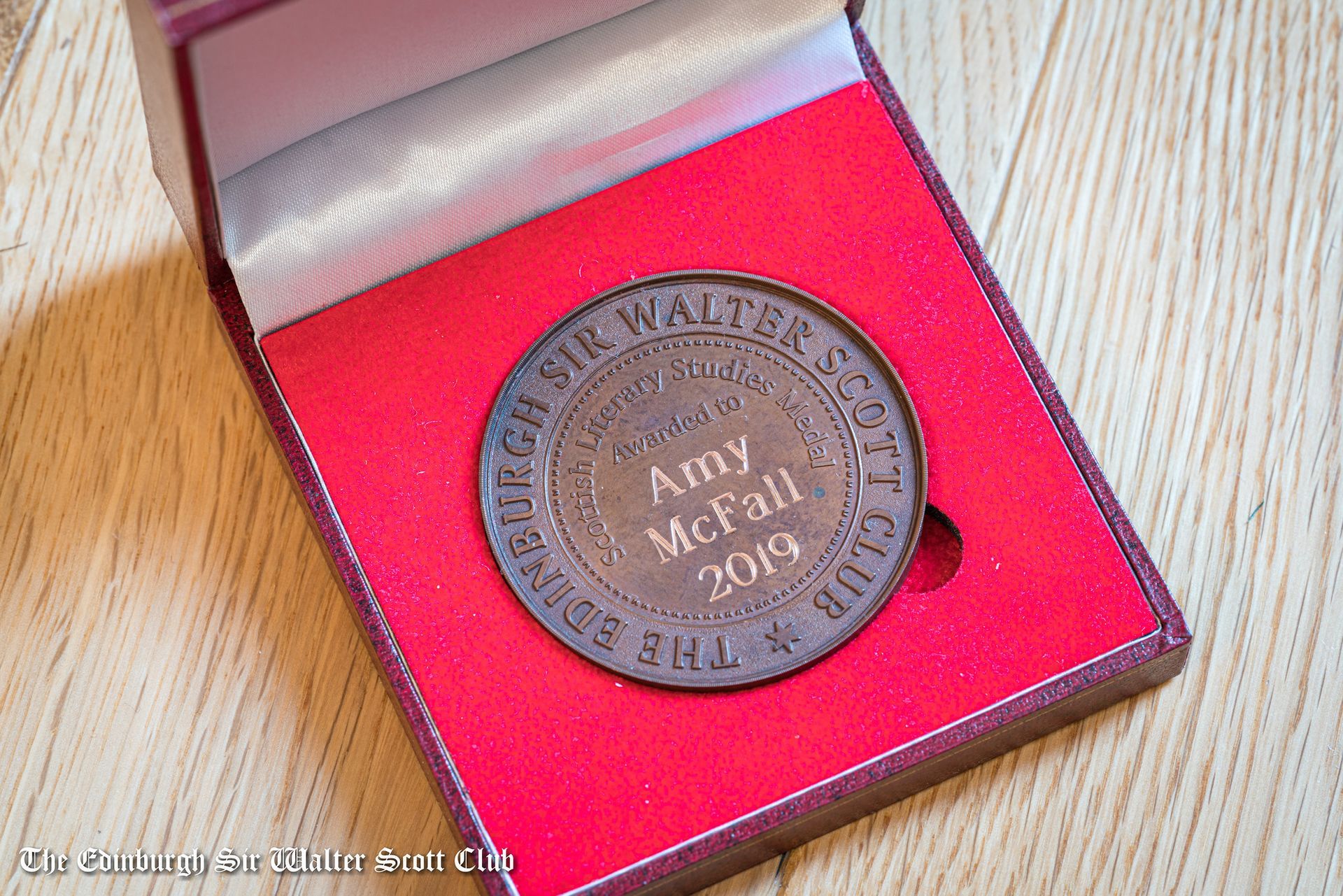
2018 Joe Christie. Joe graduated this summer with a first class honours degree in English Literature. Whilst at Edinburgh, he divided his time between his academic career and his involvement in student theatre, serving as President of the Edinburgh University Theatre Company during his second year. Joe performed in and directed various productions at Bedlam Theatre by playwrights such as David Grieg. His passion for Scottish writers nurtured through a curriculum where he read works as diverse as Walter Scott’s Ivanhoe and Muriel Spark’s The Ballad of Peckham Rye. During his third year abroad at McGill University in Montreal, much of Joe’s coursework examined the cultural links between Scotland and Quebec and this inspired him, on his return to Edinburgh, to focus his final honours study on Scottish literature. Alongside a first-class dissertation that examined how notions of belonging sit within the queer literary canon, it is Joe’s writing on critically overlooked Scottish women writers of the 20th century, the likes of Jessie Kesson and (fellow Shetlander) Willa Muir, which has led him to be awarded the Walter Scott Medal for 2018.
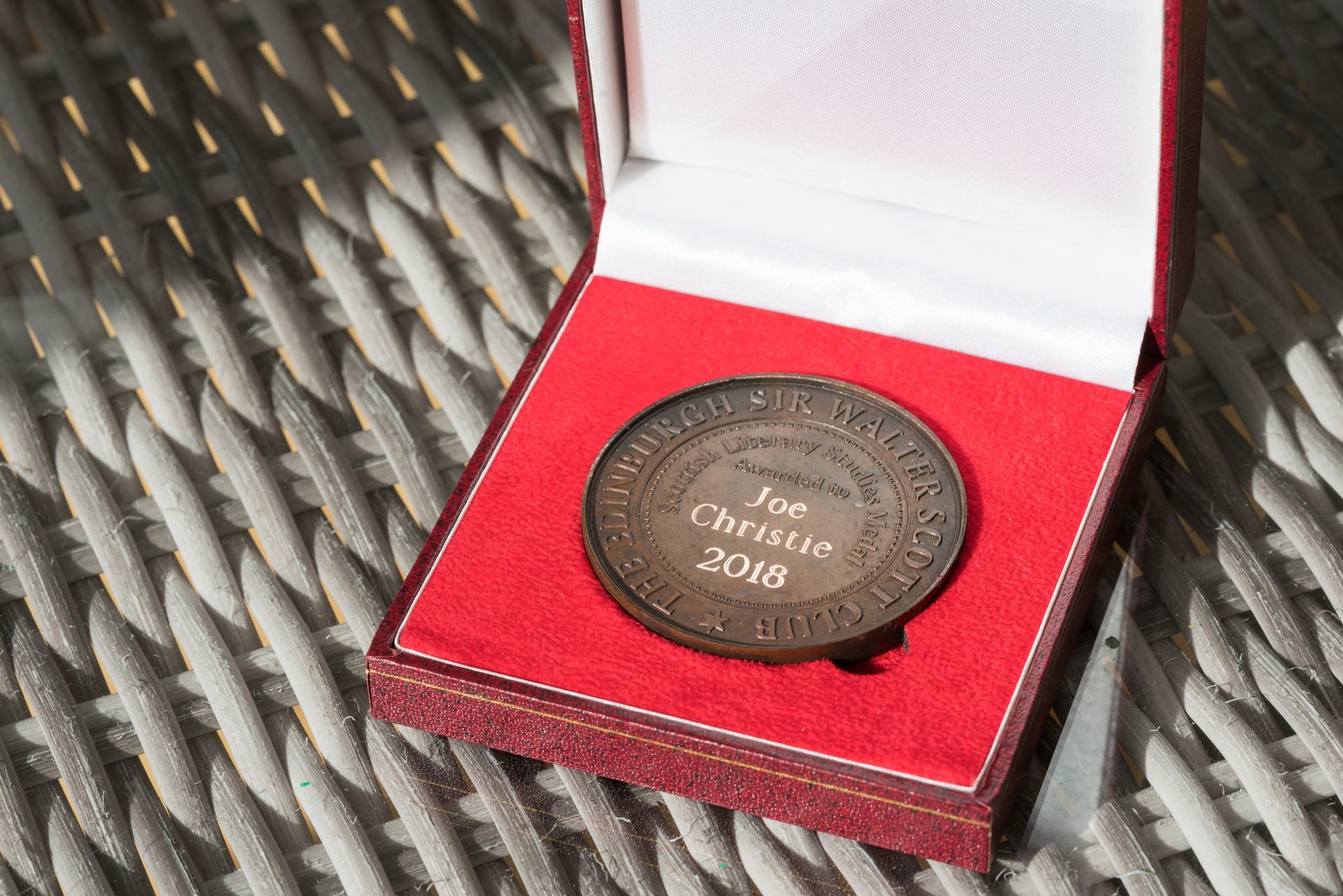
2017 Grace MacDougall. Grace graduated from Edinburgh this summer with a first class honours MA in English and Scottish Literature. This completed a very distinguished student career: Grace came top of the class in both first and second year in Scottish Literature (where she read Rob Roy and The Bride of Lammermoor on the curriculum), before spending her third year at George Washington University in Washington DC. Her studies in her senior honours year included the modules ‘Strangers to Ourselves: Post-war and Contemporary Writing’ where she read Muriel Spark and Jackie Kay, and ‘Modernism, Myth and Romance 1880–1940’ where she particularly enjoyed studying Hugh MacDiarmid and Neil Gunn. Her seniors honours dissertation brought together topics she’d studied at George Washington and at Edinburgh in a comparison of MacDiarmid’s A Drunk Man Looks at the Thistle and Allen Ginsberg’s Howl. This dissertation was awarded a first-class mark, as was all her other work in her final year, and it is for this achievement that we are delighted to present Grace with the Walter Scott Medal for 2017.
2016 Ruth Salter. During her undergraduate degree in Scottish Literature, Ruth took courses in Scottish works ranging from Medieval and Renaissance writing to contemporary Scottish fiction. She specifically worked on Scott when studying Romantic novels, writing on his relationship with national identity. Ruth’s dissertation focused on representations of Scottish colliers and their relationship with folk tradition. The Scott Club medal was awarded in particular for her first-class mark in a course on Fairy Tales, which has a strong Scottish focus. Her interest in folk culture led her to found the Scottish Universities Folk Festival in her final honours year, an event she is currently working to take into its second year. It has also prompted her recently to start studying an MSc in Celtic and Scottish Studies at the University of Edinburgh, where she hopes her background in Scottish Literature will be a valuable asset.
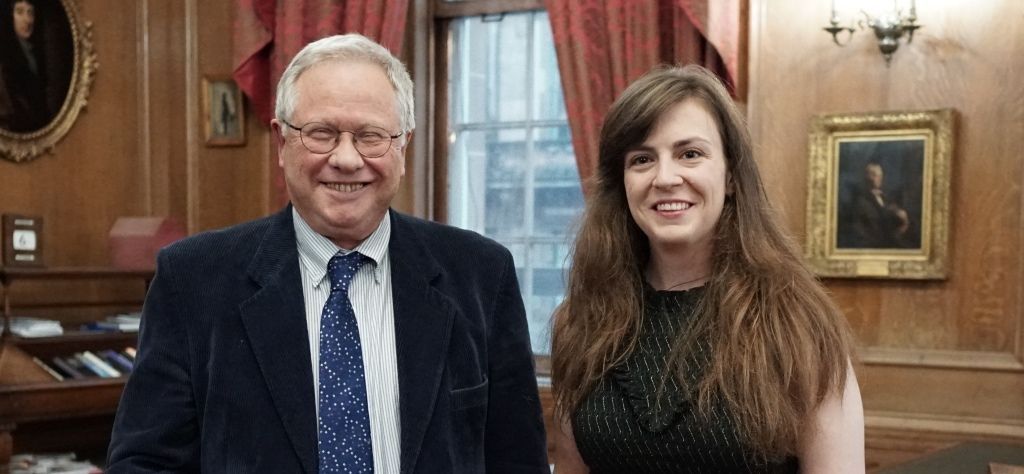
2015 Ian Anderson had graduated with an MA in English and Scottish Literature. He was awarded our Medal for his work in the honours courses ‘Contemporary Scottish Literature’, ‘Robert Burns and the Eighteenth Century’ and ‘Gender, Nation and the Novel’—a course which contains a significant number of Scott novels. He tells us that his favourite novel by Scott is "The Bride of Lammermoor" Ian is returning to the University of Edinburgh to take an Msc by Research. He is researching working-class literature and its role in intellectual life, and will focus on the question of what makes a work of literature ‘popular’?
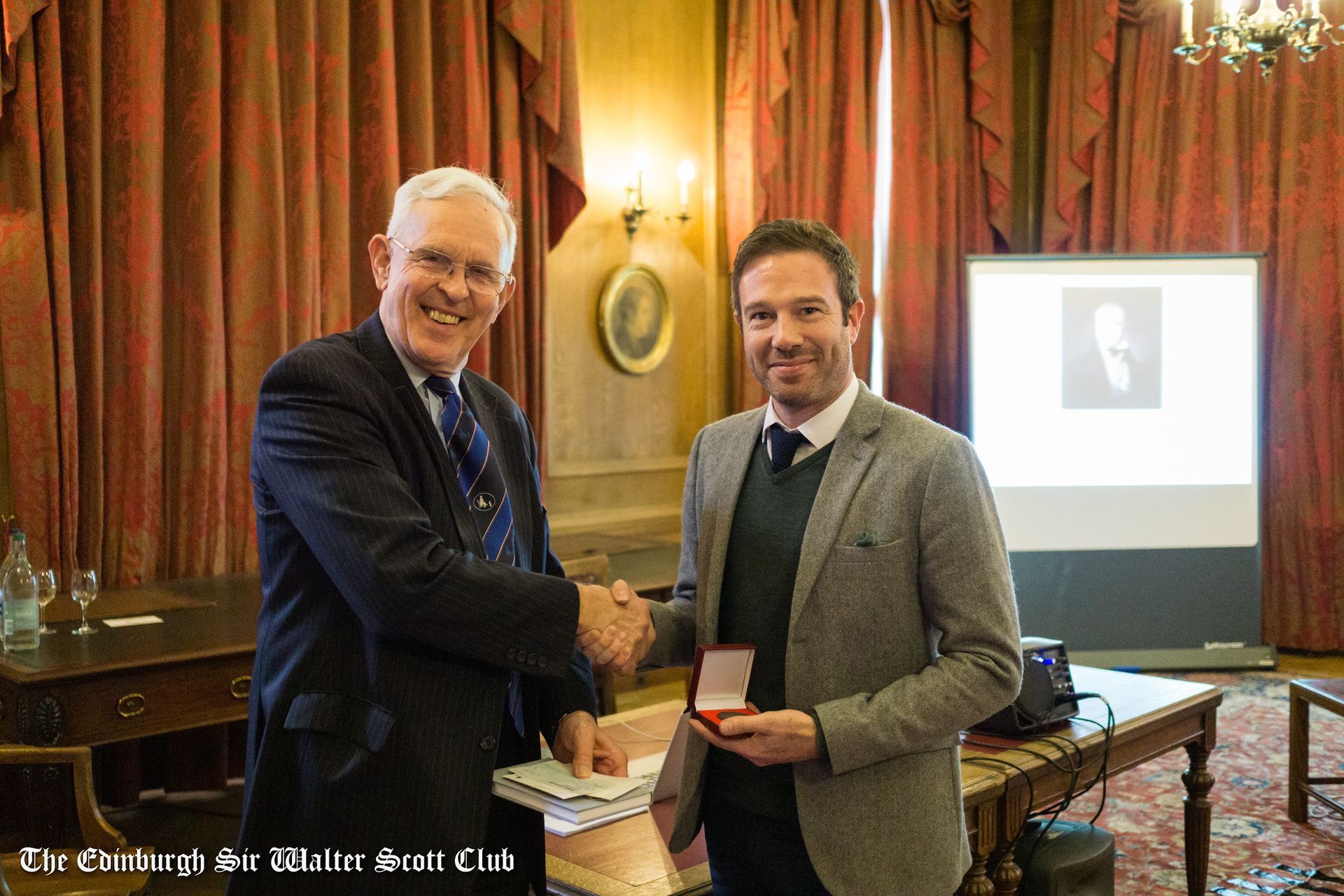
2014 Kirsteen Reid graduated with an excellent first-class degree in English and Scottish Literature. The medal was awarded for her first-class performances across a range of Scottish Literature courses, including 'Modern and Contemporary Scottish Poetry' and 'Gender, Nation and the Novel 1790-1830'--a course which includes some of Scott's novels. Kirsten is not only an excellent reader of Scottish Literature, she is also writing it. After receiving the outstanding mark of 80 for her Creative Writing paper, has been accepted onto the highly-competetive Msc in Creative Writing at Edinburgh. The Department of English and Scottish Literature greatly values its connection with the Edinburgh Sir Walter Scott Club and we are delighted to have a worthy winner of this distinguished medal
2013 Jeni Cumming was the first winner of the medal. She attained a first-class degree in English and Scottish Literature this year. The prize was awarded specifically for her work on the course "Gender, Nation and the Novel" for which she received the exceptionally high mark of 81 (the first class border is 70). This included an essay on Scott, Hogg and Austen marked at 83.
